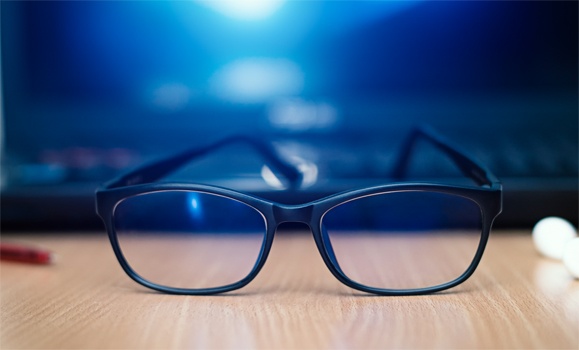About the author: is a PhD candidate in Medical Neuroscience at ║┌┴Ž│į╣Ž═°.
Health products, like detox teas and , rely on a lack of neuroscientific knowledge to make their claims. Some of these claims are unsubstantiated, while others are completely made up.
My doctoral research investigates visual processing, but when I look at the big picture, I realize that what IŌĆÖm really studying are fundamental aspects of brain anatomy, connectivity and communication.
One specific function of the visual system that I have studied during my degree is the blue-light detecting molecule, . In humans, melanopsin is seemingly restricted to a group of neurons in the eye, which preferentially target a structure in the brain called the suprachiasmatic nucleus ŌĆö the bodyŌĆÖs clock.
Circadian rhythms
This is where the (true) idea that blue light affects our sleep-wake cycle or circadian rhythm originates from. And also why many corrective lens producers have started cashing in on blue-light filtering glasses. The most common claims that go along with these lenses is that .
Blue-filtering lenses are marketed as a solution to so many other vision problems. There are claims that they .
Blue-light complexity
Ophthalmologists generally agree that there is ŌĆ£.ŌĆØ
Similar to the workings of any biological system, melanopsinŌĆÖs contribution to vision is more complicated than it is made out to be.
For example, melanopsin ŌĆö like other light-sensitive molecules in our eyes ŌĆö can result in neural activity outside of blue light specifically. Blue is simply where it is most sensitive. So, then, blue light does indeed affect our sleep-wake cycle, but so will other wavelengths of light, to a lesser extent.
But what is the real culprit of the effects of digital screen light on our sleep-wake cycle? Is it necessarily blue light alone or is the problem likely worsened by people commonly staying up late and using their devices?
The science seems to be on the . If you are staying up late anyway, blue-light blocking lenses arenŌĆÖt proven to provide any help.
Research has shown that one likely cause for eye irritation and fatigue is the time we spend in front of our screens overall, which may .

Filling the gap in clinical research
The problem seems to be not only blue-light filtering lens sellers, but the way in which we talk about findings from research.
As of yet, there is no clinical evidence that supports the benefits of using blue-light filtering lenses. For now, this is another pseudoscience market thatŌĆÖs taken advantage of its consumer base ŌĆö anyone who uses computers.
Expanding neuroscience literacy should be a public health goal: understanding how the brain and its partner organs ŌĆö like the eye ŌĆö work.
For now, keeping our eyes off screens at night and taking frequent breaks from screens is what will contribute most to our eye health and sleep hygiene.![]()
which features includes relevant and informed articles written by researchers and academics in their areas of expertise and edited by experienced journalists.
║┌┴Ž│į╣Ž═° is a founding partner of The Conversation Canada, an online media outlet providing independent, high-quality explanatory journalism. Originally established in Australia in 2011, it has had more than 85 commissioning editors and 30,000-plus academics register as contributors. A full list of articles written by ║┌┴Ž│į╣Ž═°academics can be found on┬Ā

